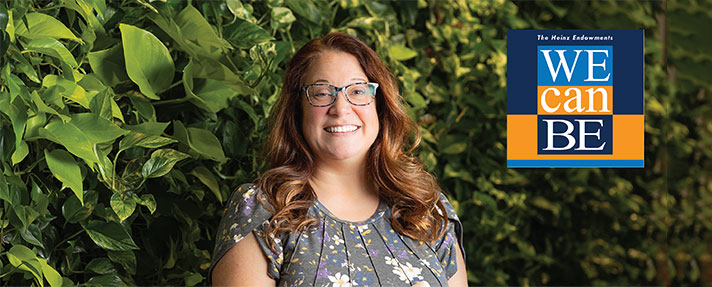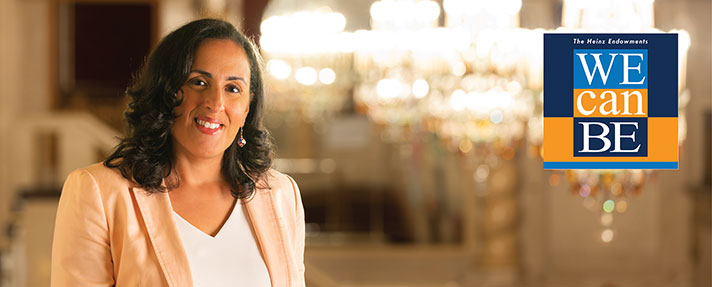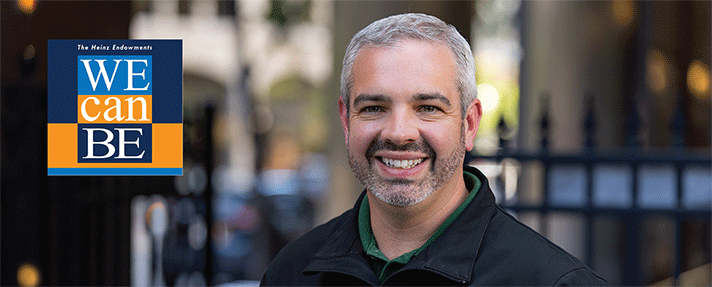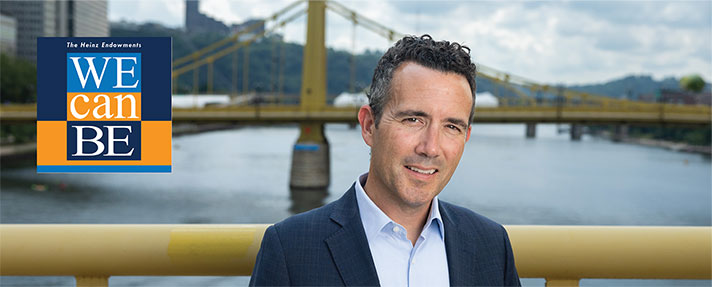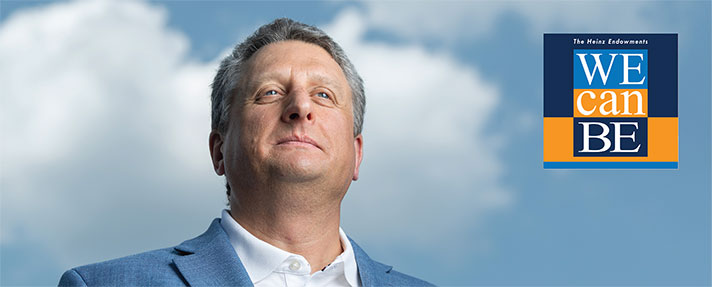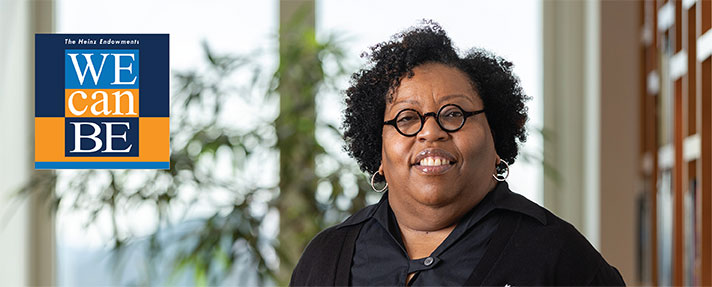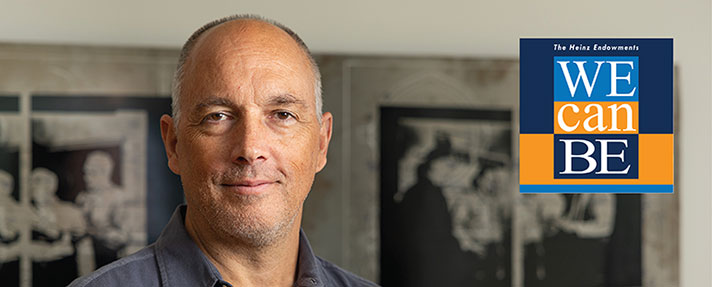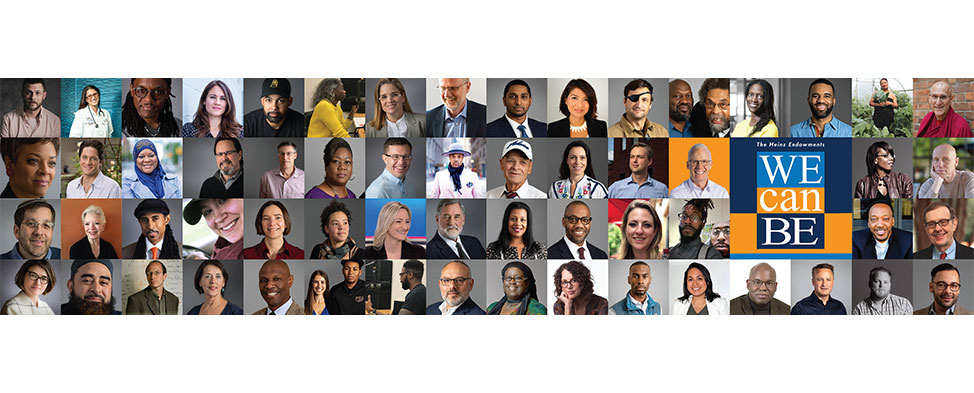
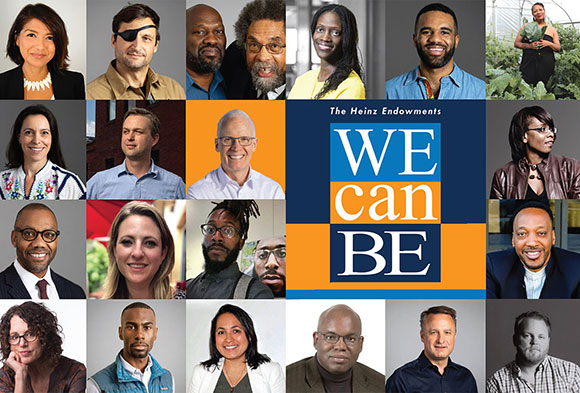
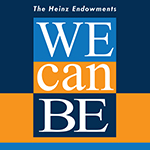
Listen to The Heinz Endowments’ “We Can Be” podcast and experience intimate, candid conversations about the big issues of the day with some of the most accomplished, caring and action-oriented individuals in the social change arena. “We Can Be” is hosted by Endowments President Chris DeCardy, and explores the often moving, revealing and always inspiring accounts of how these leaders came to believe that together we can be a more just region, state, country and world.
"We Can Be" is produced by the Endowments and Treehouse Media, with theme music by Josh Slifkin. Guest and host photos by Josh Franzos unless otherwise noted.
How to listen:
Visit this page each week for new episodes and explore past episodes in our Podcast Archives.
Visit iTunes, Podbean, Google Play, Spotify, Amazon Music and all other major podcast sites to download an episode, or subscribe so new episodes are automatically in your feed each week. Use search term: heinz we can be.

